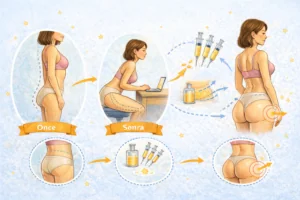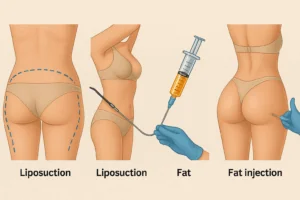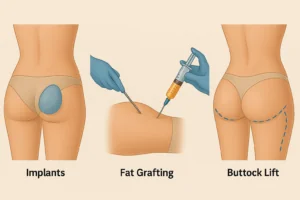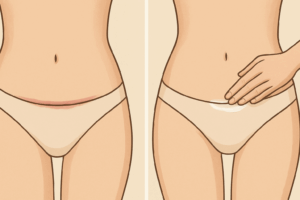The prostate is an important part of the male reproductive system and its health directly affects quality of life. This small but critical gland is located just below the bladder and surrounds the urethra. Its main job is to produce the fluid needed for sperm cells to live and be transported. However, the prostate can cause various problems with age and it is therefore important for men to be aware of their prostate health.
The normal size of the prostate gland is about the size of a walnut, but it can grow with age. This enlargement is called benign prostatic hyperplasia (BPH) and is quite common in men over 50. BPH is a benign condition that does not carry the risk of developing into cancer, but it can cause pressure in the urinary tract, resulting in a variety of symptoms.
Another important problem affecting prostate health is prostate cancer. Prostate cancer is one of the most common types of cancer in men and can be successfully treated if detected early. Regular check-ups and screening tests are therefore of great importance.
Symptoms of prostate problems are usually related to urination. Complaints such as the need to urinate frequently, especially at night, difficulty urinating, weakening or interruption of urine flow, feeling of not being able to empty urine completely and dripping after urinating can be harbingers of prostate problems. However, these symptoms may not always be caused by the prostate, so a urologist should be consulted for a definitive diagnosis.
There are many things that can be done to protect prostate health. The most important of these is to adopt a healthy lifestyle. Regular exercise, a healthy and balanced diet, avoiding smoking and excessive alcohol consumption have a positive effect on prostate health. Consumption of antioxidant-rich foods such as tomatoes, broccoli, green tea and soy products is especially recommended.
Reducing stress is also important for prostate health. Chronic stress can weaken the immune system, making the body vulnerable to various diseases. Therefore, it is helpful to learn and practice stress management techniques. Activities such as meditation, yoga or regular exercise can be effective in reducing stress levels.
Regular sexual activity can also have a positive effect on prostate health. By allowing the prostate to empty regularly, sexual activity helps to flush out the fluids that accumulate in the gland. This can reduce the risk of prostate inflammation.
Water consumption is also important for prostate health. Drinking enough water helps cleanse the urinary tract and reduces the risk of prostate infections. It is recommended to drink at least 8-10 glasses of water a day.
Regular check-ups are of great importance to maintain prostate health. From the age of 50 (40-45 if there is a family history of prostate cancer), it is recommended to have an annual prostate examination and PSA (Prostate Specific Antigen) test. The PSA test measures the level of a protein secreted by the prostate gland in the blood and is used to screen for prostate cancer. However, a high PSA level does not always mean cancer; conditions such as prostatitis (inflammation of the prostate) or BPH can also raise the PSA level.
A prostate exam can be an uncomfortable experience for many men, but this short-term discomfort is negligible when you consider the benefits of early detection. During the examination, the doctor checks the size, consistency and surface smoothness of the prostate by performing a finger rectal examination (DRE). This examination, together with the PSA test, plays an important role in the early detection of prostate cancer.
Prostate cancer is usually asymptomatic in the early stages. Therefore, regular screenings are vital. Once prostate cancer is diagnosed, treatment options are determined by the stage of the disease, the patient's age and general health. There are several treatment options available, including active surveillance, surgery, radiotherapy and hormone therapy.
In addition to prostate cancer, inflammation of the prostate, called prostatitis, is a common problem in men. Prostatitis can be caused by bacterial or non-bacterial causes and can cause symptoms such as fever, groin pain, burning sensation when urinating. Depending on the cause, treatment may include medicines such as antibiotics, painkillers or alpha blockers.
In the treatment of benign prostatic hyperplasia (BPH), different approaches can be applied depending on the severity of the symptoms. While lifestyle changes and regular follow-up may be sufficient for mild symptoms, more severe cases may require medication or surgical intervention. Drug treatment usually includes alpha blockers and 5-alpha reductase inhibitors. Surgical options include transurethral resection of the prostate (TURP), laser treatments and open prostatectomy.
Being aware of prostate health and taking the necessary precautions is important not only for physical health but also for psychological health. Prostate problems can lead to sexual dysfunction and urinary control problems, which can seriously affect quality of life. This can lead to psychological problems such as loss of self-esteem and depression. For this reason, it is also recommended that men with prostate health problems seek psychological support when necessary.
Raising awareness about prostate health and encouraging men to have regular check-ups is also important for public health. Events such as the "Movember" campaign in November are particularly effective in raising awareness about prostate cancer and other men's health issues.
In conclusion, prostate health is a vital issue for men. Adopting a healthy lifestyle, not neglecting regular check-ups and contacting a healthcare provider immediately if any symptoms are noticed are critical for early diagnosis and effective treatment of prostate problems. Remember that maintaining your prostate health is the key to improving your overall quality of life and living a long, healthy life. Take care of yourself, care about your health and keep up with your prostate check-ups.

























